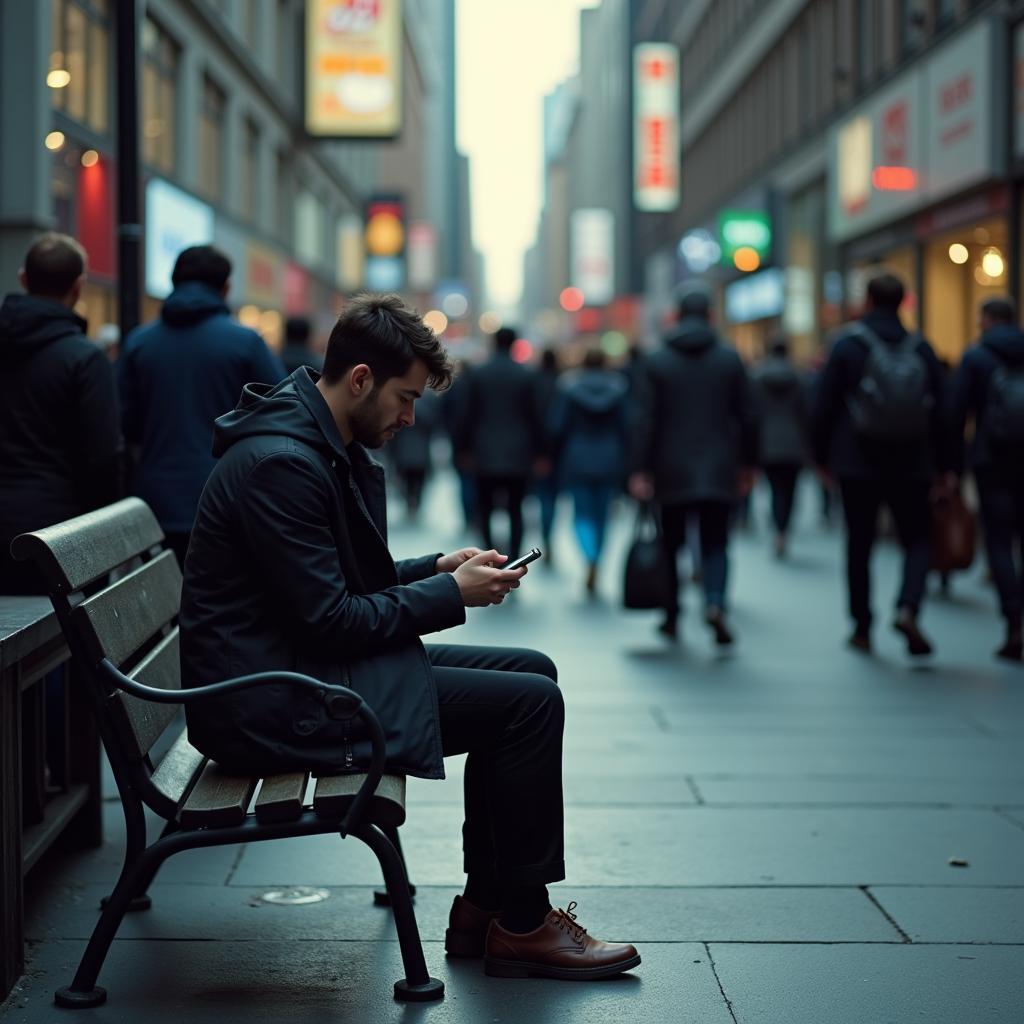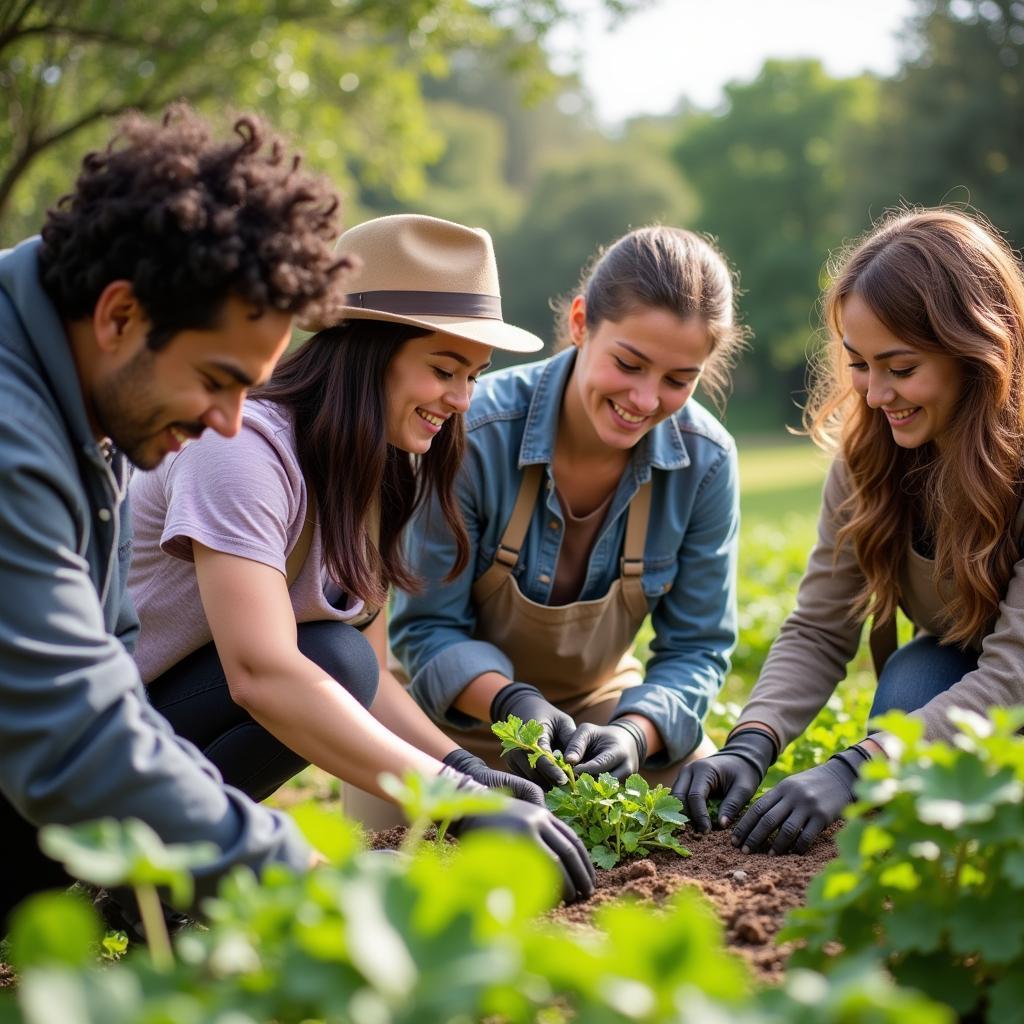A “Cold Society” can be characterized by a lack of empathy, connection, and community. This increasing detachment, often exacerbated by technology and fast-paced lifestyles, can leave individuals feeling isolated and lost. But even in a seemingly cold society, warmth and connection can be cultivated. This article explores the dynamics of a cold society, its impact on individuals, and offers strategies for fostering genuine connection and building a more compassionate world.
Understanding the Dynamics of a Cold Society
What contributes to the perception of a cold society? Several factors play a role, including the rise of social media, increasing urbanization, and the decline of traditional community structures. Social media, while designed to connect, can paradoxically create a sense of isolation as individuals compare their lives to curated online personas. Urbanization, with its anonymity and transient populations, can make it challenging to forge lasting relationships. The decline of traditional communities, such as religious institutions and neighborhood groups, further erodes the social fabric that once provided support and belonging.
Check out our article on Cold Spring Film Society.
These factors contribute to a sense of anonymity and detachment, fostering a climate where individuals feel less accountable for their actions and less connected to those around them. This can manifest in a lack of empathy, increased social anxiety, and a decline in civic engagement. A cold society can breed indifference and apathy, making it difficult for individuals to find meaning and purpose.
The Impact of a Cold Society on Individuals
The consequences of living in a cold society are far-reaching. Individuals may experience increased stress, anxiety, and depression. The lack of social connection can weaken the immune system and increase the risk of chronic diseases. Furthermore, a cold society can contribute to a decline in mental well-being, leading to feelings of hopelessness and despair.
 The Impact of a Cold Society on Mental Health
The Impact of a Cold Society on Mental Health
The erosion of trust and social capital can also lead to increased crime rates and a decline in civic participation. When individuals feel disconnected from their communities, they are less likely to invest in the common good and more likely to engage in self-serving behaviors.
Cultivating Warmth in a Cold Society: Strategies for Connection
Despite the challenges, there are ways to combat the coldness and foster genuine connection. Actively seeking out opportunities for face-to-face interaction, volunteering in the community, and joining groups based on shared interests can help build a sense of belonging. Practicing empathy and actively listening to others can strengthen relationships and foster a more compassionate environment.
 Building Community in a Cold Society
Building Community in a Cold Society
“Building bridges of understanding starts with small acts of kindness and empathy,” says Dr. Anya Sharma, a renowned social psychologist. “Even a simple smile or a genuine conversation can make a profound difference in someone’s day and contribute to a warmer social climate.”
Reclaiming Community: Building a More Compassionate World
Creating a warmer, more connected society requires a collective effort. Promoting social responsibility, encouraging civic engagement, and supporting initiatives that foster community building are crucial steps towards creating a more compassionate world. Investing in education and promoting emotional intelligence can also help individuals develop the skills necessary to build strong, healthy relationships.
“We need to move beyond superficial connections and cultivate genuine relationships based on trust, empathy, and mutual respect,” adds Professor David Lee, a leading expert in community development. “This requires a conscious effort to prioritize human connection over digital distractions and to invest in the social fabric of our communities.”
You may find helpful information in our articles on Coldwell Banker Diamond Society and International Sterling Society Coldwell Banker.
 Fostering Empathy in a Cold Society
Fostering Empathy in a Cold Society
While the challenges of a cold society are significant, they are not insurmountable. By prioritizing human connection, practicing empathy, and actively engaging in our communities, we can create a warmer, more compassionate world for ourselves and future generations. The key lies in recognizing our shared humanity and working together to build bridges of understanding and connection.
Conclusion
Addressing the coldness in our society requires recognizing the underlying issues and actively working to create a more connected and compassionate world. By fostering empathy, promoting social responsibility, and investing in community building initiatives, we can begin to thaw the chill and build a society where individuals feel valued, supported, and connected. Let’s work together to cultivate warmth in a cold society.
FAQ
- What is a cold society?
- What are the signs of a cold society?
- How does a cold society impact mental health?
- What can individuals do to combat the coldness in society?
- How can we build a more compassionate world?
- What role does technology play in a cold society?
- How can communities foster a sense of belonging?
You might also be interested in reading our article on How Cold Was It in Society of the Snow and Coldwell Banker International Diamond Society.
For further support, please contact us:
Phone: 02043854663
Email: [email protected]
Address: Khu 34, Bac Giang, 260000, Vietnam.
Our customer service team is available 24/7.